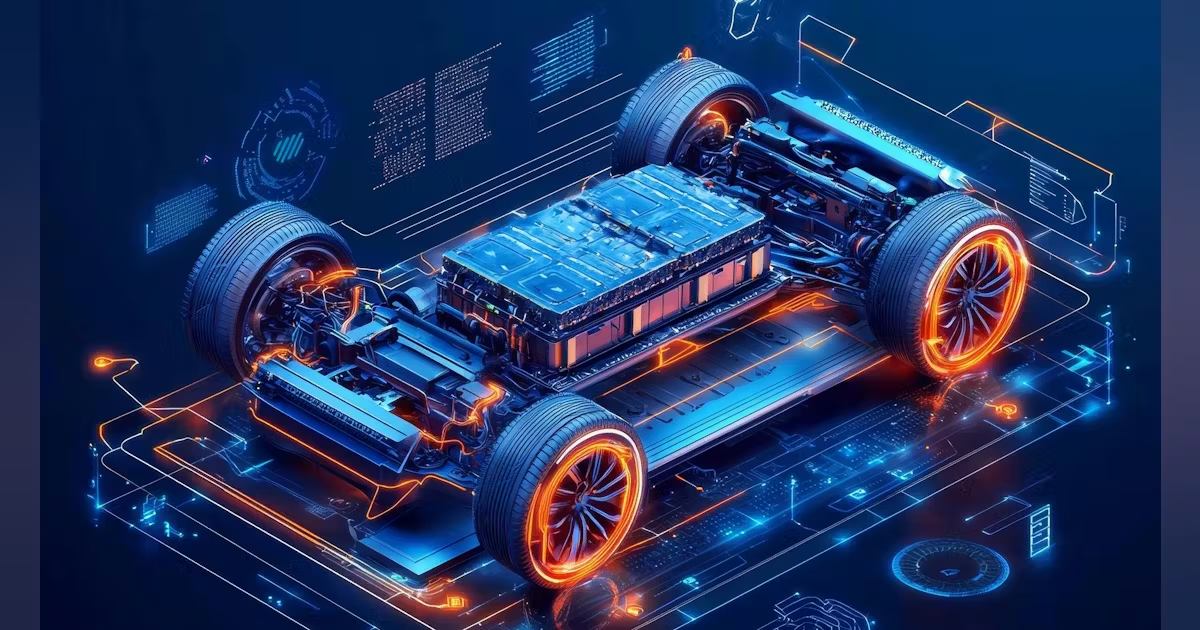The electric vehicle revolution is entering its next transformative phase, driven by an unexpected force: artificial intelligence. As global EV adoption accelerates, automakers and battery developers are turning to AI to solve one of the industry’s most persistent challenges – creating batteries that are safer, longer-lasting, and more efficient. This technological marriage is producing remarkable breakthroughs that could redefine what EVs can do.
How AI is Revolutionizing Battery Technology
AI’s impact on EV batteries manifests in several groundbreaking ways:
1. Smart Battery Management Systems
Modern EVs now employ AI-driven battery management that continuously monitors and adjusts performance in real-time. These systems analyze thousands of data points – from individual cell temperatures to charging patterns – using machine learning to optimize power distribution. The result? Batteries that maintain peak efficiency while significantly extending their operational lifespan.
2. Accelerated Materials Discovery
Traditionally, battery development involved years of trial-and-error experimentation. AI changes this paradigm by rapidly simulating millions of potential material combinations. Researchers at Stanford recently used AI to identify a novel electrolyte formulation in just 40 days – a process that normally takes years. This approach is leading to batteries with higher energy densities and faster charging capabilities.
3. Predictive Maintenance
Through deep learning algorithms, EVs can now predict potential battery issues before they occur. By analyzing historical performance data and comparing it against real-time operation, these systems can alert drivers to needed maintenance, preventing costly failures and enhancing safety.
The Benefits of AI-Optimized Batteries
The implications of these advancements are profound:
- Extended Range: AI-optimized batteries can squeeze 15-20% more range from existing battery chemistries
- Faster Charging: Intelligent thermal management enables ultra-fast charging without degradation
- Longer Lifespans: Predictive algorithms can double typical battery lifecycles
- Enhanced Safety: Real-time monitoring dramatically reduces fire risks
- Cost Reduction: Improved efficiency lowers the overall cost per kilowatt-hour
Challenges and Considerations
While promising, AI-optimized batteries face hurdles. Data privacy concerns arise from constant performance monitoring. The environmental impact of more complex battery systems must be addressed. And the industry needs standardized protocols for AI implementation across manufacturers.
The Road Ahead
As AI continues to evolve, its integration with battery technology will only deepen. We’re moving toward self-optimizing batteries that improve with use, adapting to driver behavior and environmental conditions. This synergy between artificial intelligence and energy storage isn’t just enhancing EVs – it’s redefining the boundaries of what electric mobility can achieve.
Visit these links for similar information :
https://wordtaps.com/
https://heatheninc.com/
https://vstorekids.com/
https://mundoadministrativo.net/
https://aguidetravel.com/
https://onlinebuymarijuana.com/
https://tnanews.net/
https://janewashere.co.uk/
https://hotelsinvalencia.org/
https://topholidays.net/
https://zbusoft.com/
https://triltechnology.net/
https://homelessinformation.com/
https://cadhomeplan.com/
https://marcospitbullhome.com/
https://polynews.org/
https://healthylivingindia.org/
https://thenewstime.net/
https://promopoker.net/
https://refinance-student-loans.org/
https://cityp.org/
https://oldpathshomesteading.com/
https://newsetmoto.com/
https://aboutfinancetoday.com/
https://homesandbenefits.com/
https://geotheatre.org/
https://firstpresbyterianpreparatoryschool.org/
https://homesbyelva.com/
https://askdrhealth.com/
https://thefashionstyle.org/










